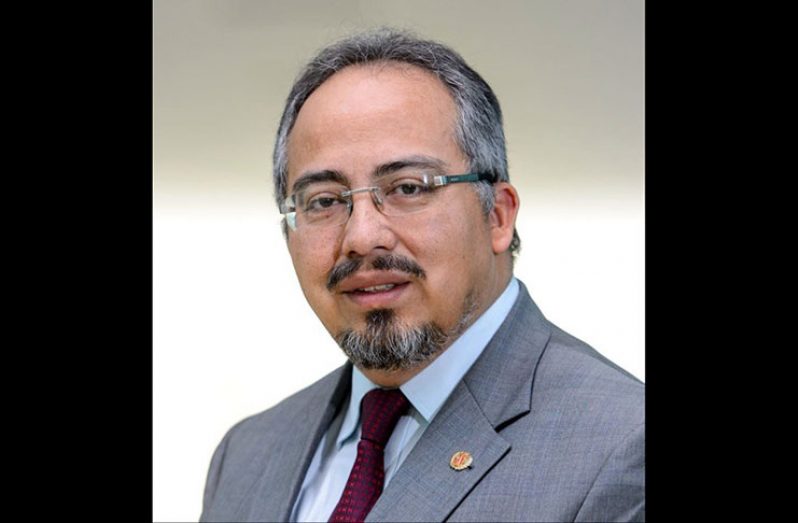…says nearly 8000 Guyanese living with the disease
AS THE world observes World AIDS Day today, UNAIDS has revealed that as of 2015 some 7800 Guyanese are living with the disease.
Cuba leads the way with 22,000, Haiti, 130,000, Jamaica 29,000 and Trinidad and Tobago 11,000. Bahamas is at 8,100.
Director of UNAIDS Latin America and Caribbean, Dr. César Núñez said World AIDS Day 2016 being observed today comes a year after the community of nations committed to ending the pandemic by 2030 as part of the Sustainable Development Goals and six months following a landmark Political Declaration to end AIDS.
In a statement to mark the occasion Nunnez said HIV prevention is central to achieving this goal, noting that at this exciting moment in history “we have at our disposal a combination of new science, evidence-based prevention strategies refined over more than 30 years, and the understanding that in order to succeed we must ensure that no one is left behind.”
The UNAIDS official said some of the weapons available are familiar, noting that condoms still matter.” Our governments have committed to ensuring that we have strengthened national condom programmes with sufficient attention to procurement and distribution. We’ve learned over the last two decades how to use social marketing to target specific audiences and to drive demand for condom use,” Nunez said.
He added:”our region also knows how to prevent babies from being born with HIV. Through the widespread expansion of antiretroviral treatment for mothers living with HIV, there have been dramatic declines in HIV transmission to children. In 2015 nine of every ten pregnant women living with HIV in Latin America and the Caribbean received antiretroviral medicines (88%).”
Cuba led the world by becoming the first country to be validated last year by the World Health Organization as having eliminated this form of HIV transmission. The validation process is underway now in 12 Caribbean countries and territories including Antigua and Barbuda, Barbados, Dominica, Grenada, St. Kitts and Nevis and St. Vincent and the Grenadines. The UNAID official said the success of these countries reminds us that the elimination of new HIV infections among children is a realistic and urgent goal.
According to him, in 2008 Health and Education Ministers in Latin America and the Caribbean committed to providing young people with comprehensive sexuality education through the “Educating to Prevent” Declaration. “We’ve long acknowledged our responsibility to give young people the information they need to keep them safe throughout life. We must now ramp up our efforts to ensure that adolescents have that education along with access to economic empowerment and sexual and reproductive health services,” he said.
“Today, happily, we have new tools to bolster HIV prevention. Pre-exposure prophylaxis or PrEP—HIV drugs taken by an HIV negative person on a daily basis—dramatically reduces the chance of contracting the virus. The world has agreed to reach at least three million people at higher risk of HIV infection with these preventative drugs. Many Governments in our region have come onboard.” He said early HIV testing and treatment can be game-changers as well. “We now know that the sooner a person living with HIV finds out their status and starts treatment, the sooner the levels of the virus in their blood can be reduced, nearly eliminating the risk of infecting someone else. It is on this basis that governments have committed to achieving the 90-90-90 targets–90% of people living with HIV aware of their status, 90% of those people on treatment and 90% of treated people virally suppressed.”
Overall an estimated 55% of people living with HIV in Latin America and the Caribbean were on treatment in 2015. Achieving this target will require significant investments and commitment.” As governments and health ministries strategize about how to achieve scale-up, it is important to remember that these goals are feasible.”




.png)









